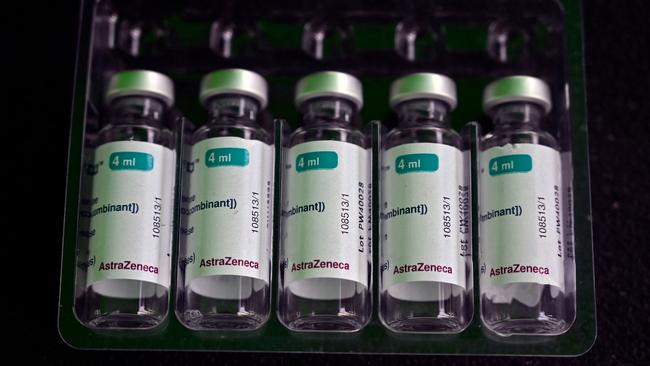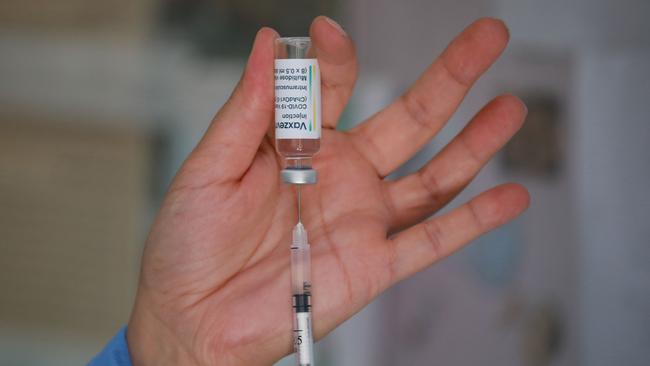Scientists find possible trigger for rare AstraZeneca blood clots
Scientists believe they may have found the trigger behind the extremely rare blood clot complications that stems from the AstraZeneca Covid jab.

Illness
Don't miss out on the headlines from Illness. Followed categories will be added to My News.
Scientists believe they may have found the trigger behind the extremely rare blood clot complication that stems from the AstraZeneca Covid-19 vaccine.
Carried out by a team of British and US researchers, the new study suggests the interaction between the adenovirus used in the vaccine and a protein in the blood (known as platelet factor 4) could be the basis of the condition, known as vaccine-induced immune thrombotic thymbrocytopenia (VITT).
This could spark a chain reaction in the immune system culminating in the development of blood clots.
“VITT only happens in extremely rare cases because a chain of complex events needs to take place to trigger this ultra-rare side effect,” Professor Alan Parker, from Cardiff University’s School of Medicine, explained.
Stream the latest health news with Flash. Stay up to date with more than 20 global & local news sources. New to Flash? Try 14 days free now>

“Our data confirms PF4 can bind to adenoviruses, an important step in unravelling the mechanism underlying VITT. Establishing a mechanism could help to prevent and treat this disorder.
“We hope our findings can be used to better understand the rare side effects of these new vaccines and potentially to design new and improved vaccines to turn the tide on this global pandemic.”
The researchers think the next stage to learning more about what causes the disorder is “misplaced immunity”, but this needs to be confirmed in further research.
AstraZeneca scientists also took part in the research, which was published in the Science Advances journal. A spokeswoman for the pharmaceutical giant told the BBC that while “the research is not definitive, it offers interesting insights and AstraZeneca is exploring ways to leverage these findings as part of our efforts to remove this extremely rare side effect”.
She stressed that clots are more likely to occur because of a Covid-19 infection than the vaccine – which is thought to have saved more than a million lives around the world and prevented some 50 million cases of coronavirus.
In Australia, eight deaths have been linked to the syndrome, according to the Therapeutic Goods Administration (TGA).
The Federal Government announced in October that it would not renew its contract with biotech giant CSL to manufacture more doses of AstraZeneca in Melbourne beyond the 51 million doses the company had already promised to deliver, with production expected to wind up early next year.
“The contract is being delivered in full, the doses are being shared, but it was only ever going to be one of the methods [for vaccine supply] and it was never contemplated that CSL would become a contract manufacturer,” Health Minister Greg Hunt said at the time.
The move was criticised by the federal opposition and aid groups, who urged the government to extend its contract and send the doses to regional countries that still had millions of citizens to vaccinate.
“Why wouldn’t we keep producing these and ensure that our region is more secure? It’s just shortsighted,” Shadow Foreign Minister Penny Wong said of the “bewildering” decision.
But University of Queensland Associate Professor Paul Griffin told 9News it was understandable Australia wouldn’t “want to be manufacturing something that’s not going to be utilised and we will have a number of options heading into the future”.
“It has received a lot of negative press and it’s a vaccine that’s proven highly effective and very safe,” he added.
Originally published as Scientists find possible trigger for rare AstraZeneca blood clots





